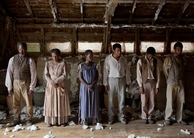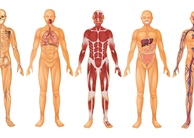Opinion:Who Makes a Nation? An Examination of Nationalism, Gender, and Membership in the Nation
By
2009, Vol. 1 No. 12 | pg. 1/1
KEYWORDS:
Nationalism is defined by Merriam-Webster’s dictionary as, “loyalty and devotion to a nation; especially: a sense of national consciousness exalting one nation above all others and placing primary emphasis on promotion of its culture and interests as opposed to those of other nations or supranational groups” (nationalism, 2009). Nationalism is an ideology that focuses both on loyalty to and pride in one’s nation. It can be as obvious as saying the pledge of allegiance every morning in school or more subtle, like Stetson Cologne’s use of national football star Tom Brady to promote their new product line. Nationalism, at its core, instills a belief in citizens that their country is important and superior to other countries, and that their individual identity is strongly tied to their homeland. The end of the era of colonization has led to a rise in nationalism throughout the world. Sita Ranchod-Nilsson and Mary Ann Tetreault comment on this in the chapter, Gender and nationalism: “The collapse of old political frameworks and the reconfiguration of global economic power have been accompanied by an impulse to redefine, reassert, and reconfigure meanings of the nation on multiple levels” (p 1, Ranchod-Nilsson & Tetreault, 2000). As colonial powers have begun retracting from countries they once imperialized, citizens of those countries have been given the opportunity to once again define their nation as they perceive it, rather than accept the definitions imposed on them by other powers. Nationalism has also been used as a tool by imperialized people to topple the foreign regimes that control them. The most successful anti-colonization movements have had nationalistic motivations. The Indian Nationalist Movement serves as an example of this. Under the leadership of Ghandi, Indians developed a nationalist pride that motivated them to demand sovereignty from Britain (Indian nationalist movement, 2008). Citizens of a nation are most willing to fight for their country’s independence from colonial powers if they have pride in their nation, believing their nation is important and superior to the powers colonizing it, and if they feel defined in some way by the land in which they live. Nationalistic movements are often tied to the land, giving natives of the land an advantage over foreigners.Gender, especially womanhood, is often defined in regards to the nation. Ranchod-Nilsson and Tetreault write: “The centrality of gender to resurgent nationalist forces and discourses continues to be striking” (p 1, Ranchod-Nilsson & Tetreault, 2000). Each nation assigns gender roles to its citizens. In Western nations men are assigned the roles of protector and laborer, whereas women are assigned the roles of mother and homemaker. By defining roles for women and men, nationalism also denies the existence of a gender identity outside the traditional male or female. Intersexed individuals have no gender role, i.e. no designated role to play in the nation. Evidence of how nationalism and cultural norms define gender roles can be found by examining the role of colonization on gender. Maria Lugones examines several examples in her essay, Heterosexualism and the Colonial/Modern Gender System (2000). One example she gives is the Yoruba society. Before the Yoruba people were colonized by the west, gender was not used as a social organizing tool. As Lugones writes: Oyewumi understands gender as introduced by the West as a tool of domination that designates two binarily opposed and hierarchical social categories… Women are defined in relation to men, the norm. Women are those who do not have a penis; those who do not have power; those who cannot participate in the public arena. None of this was true of Yoruba anafemales prior to colonization (p 17, Lugones, 2007). Lugones explains that before colonization, women and men were not viewed as separate social categories and each took equal part in society and government. When society was colonized, the categories of male and female were created and females were excluded from the public arena. Another example Lugones gives regards Cherokee society prior to colonization. In colonization of the Cherokee, gender roles were used as a tool to aid imperialization. She writes, “The white colonizer constructed a powerful inside force as colonized men were co-opted into patriarchal roles… The British took Cherokee men to England and gave them an education in the ways of the English… Cherokee women lost all these powers and rights, as the Cherokee were removed and patriarchal arrangements were introduced.” (p 21, Lugones, 2007). By creating gender roles that gave men power over women, the colonizers earned the support and cooperation of the society’s men, making it easier to imperialize them. The aforementioned examples of gender hierarchies being used as a tool of colonization show the power that cultural norms have in defining who are and who are not members of the state. Women are often denied privileges of citizenship, like voting and the right to participate in government, excluding them from being full members of the state. Racial minority groups have also been historically denied these privileges. Zillah Einstein discusses this in her chapter, Writing bodies on the nation for the globe: “A nation is defined by its unity; differences and particularities within it challenge its universality. Shared commonness is privileged against diversity, which is problemized as disorderly” (p 37, Ranchod-Nilsson & Tetreault, 2000). Nationalism, she says, becomes a form of racism, as one must have ancestral roots to the nation to truly be a member of it. Many nationalist movements serve as examples of this. Einstein writes, “Serb nationalists specify their racial blood as formative of “the” nation, much like Hitler defined Germany by Aryan blood” (p 39, Ranchod-Nilsson & Tetreault, 2000). Maria Lugones notes that minority women are often hit hardest of all: “It is part of their history that only white bourgeois women have consistently counted as women so described in the West. Females excluded from that description were… understood as animals in the deep sense of ‘without gender’, sexually marked as female, but without the characteristics of femininity” (p 26, Lugones, 2007). Lacking the necessary ‘feminine qualities’, women of color are denied any privileges afforded to white women. Lugones explains, “Colonized females got the inferior status of gendering as women, without any of the privileges accompanying that status for white bourgeois women” (p 27, Lugones, 2007). While women have historically been excluded from national membership, they have often fought back. The film If Hope Were Enough, chronicles the role of women in the development of an International Criminal Court. The film emphasizes the importance of women working together to ensure that the International Criminal Court is used to prosecute international violations of women’s rights. (Women's Caucus for Gender Justice & Witness, 2000). Groups such as the Women’s Initiatives for Gender Justice have had some success in bringing crimes against women under the jurisdiction of international law. As of 2008, the International Criminal Court “explicitly recognizes rape, sexual slavery, enforced prostitution, forced pregnancy, enforced sterilization or any other form of sexual violence as war crimes in international and non-international armed conflict as well as crimes against humanity” (p 36, Inder, Tourell, Orlovsky, & Serra, 2008). Women must work together to fight the structures of power that oppress them, while remaining aware of the oppressive nature of nationalism itself. Women should not fight solely for women’s rights, but for rights of all members of the nation and international protection for citizens of all nations. ReferencesInder, B., Tourell, D. E., Orlovsky, K., & Serra, V. (2008). Gender report card 2008 on the international criminal court. The Women's Initiatives for Gender Justice. "Indian Nationalist Movement," Microsoft® Encarta® Online Encyclopedia 2008 Lugones, M. (2007). Heterosexualism and the colonial /Modern gender system. Hypatia, 22(1), 186-209. nationalism. (2009). In Merriam-Webster Online Dictionary. Retrieved March 16, 2009, from http://www.merriam-webster.com/dictionary/nationalism Ranchod-Nilsson, S., & Tetreault, M. A. (Eds.). (2000). Women, states and nationalism. New York, New York: Routledge. Women's Caucus for Gender Justice, & Witness. (2000). If hope were enough. New York: The Caucus. Suggested Reading from Inquiries Journal
Inquiries Journal provides undergraduate and graduate students around the world a platform for the wide dissemination of academic work over a range of core disciplines. Representing the work of students from hundreds of institutions around the globe, Inquiries Journal's large database of academic articles is completely free. Learn more | Blog | Submit Latest in Opinion |


















